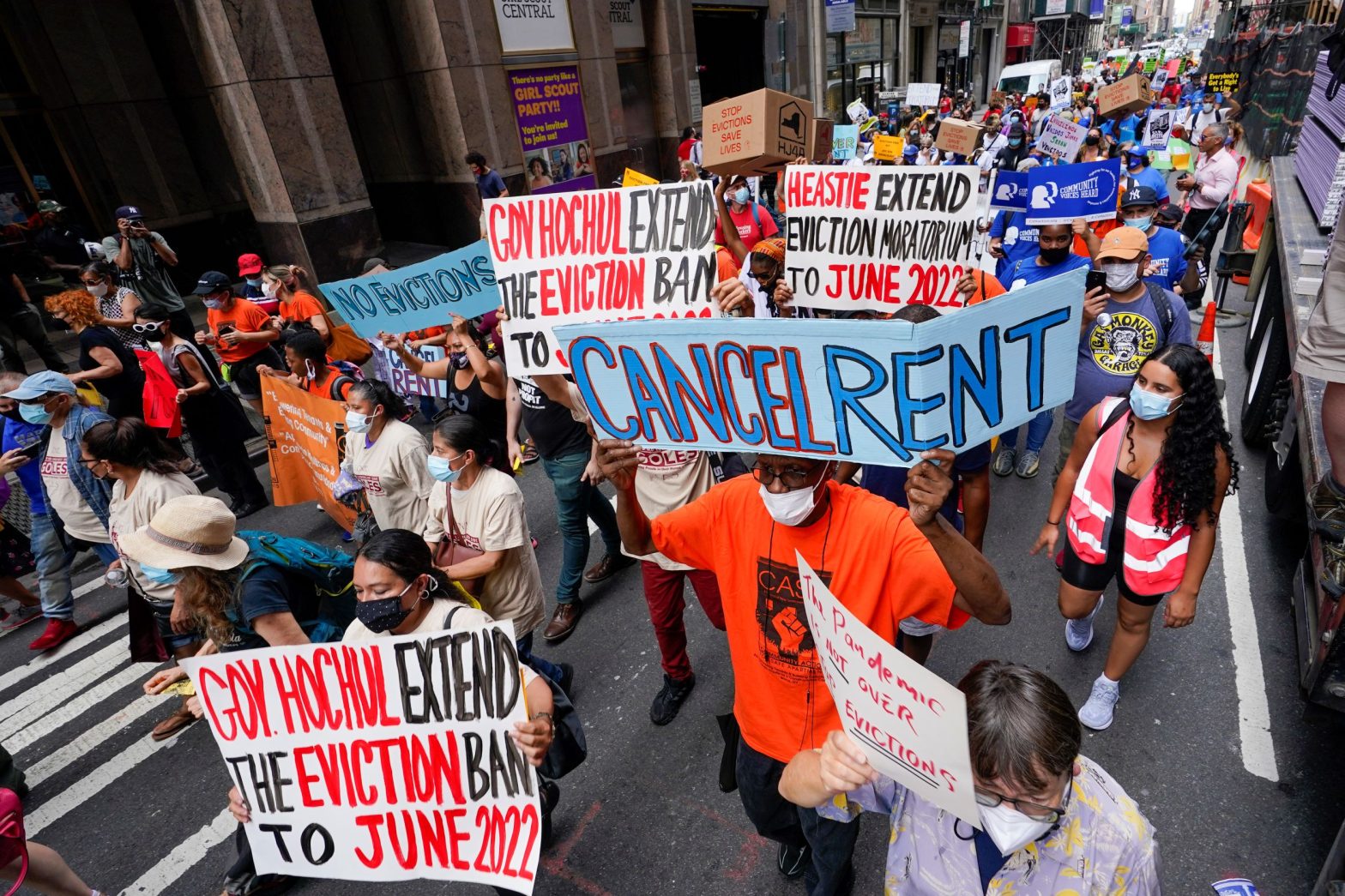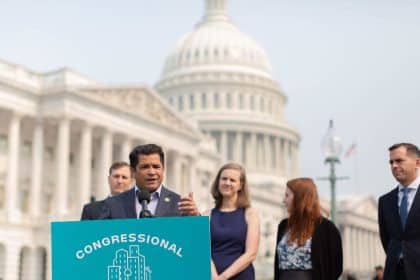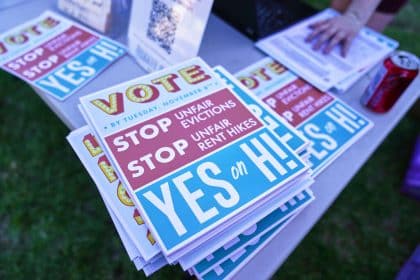Congress Tries to Repair Rental Assistance Program

WASHINGTON — Republican and Democrat lawmakers could not agree on much during Friday’s heated House hearing on the Emergency Rental Assistance Program, except that the funds were not reaching the renters and landlords quickly enough.
“Congress gave the Treasury Department $46.6 billion to help renters and property owners survive the pandemic… To state the obvious, the [ERAP] isn’t working,” said Rep. Patrick McHenry, R-NC, ranking member of the House Committee on Financial Services at the hearing entitled, “Protecting Renters During the Pandemic: Reviewing Reforms to Expedite Emergency Rental Assistance.”
Only 11% of the $46.6 billion Congress appropriated in the past year to help prevent renters from losing their homes has reached the people who need it, according to the U.S. Treasury Department.
Maxine Waters, D-Calif., said, “There is no question that the funds are not reaching landlords and renters quickly or widely enough.”
Meanwhile, the Supreme Court ruled Aug. 26 that the federal moratorium on evictions is unconstitutional, meaning landlords can remove tenants who are behind on their rent.
About 750,000 households will lose their homes this year, according to a report late last month from economists at the financial firm Goldman Sachs. Roughly three million households are behind on their rent.
“Our work is not done,” said Waters.
She was referring to failings of the Emergency Rental Assistance Program, which is designed to make funding available for households whose incomes were hurt by the pandemic to pay their rent or utilities.
It was approved by Congress in two phases as the pandemic drove up unemployment to 14.8% in April 2020, the highest rate since the U.S. Labor Department started data collection in 1948.
The first phase, which Congress passed last December, appropriated $25 billion that is being distributed through states and cities. The second phase in March added $21.55 billion.
Witnesses from the housing industry who testified at the hearing said the process to receive the money is so laborious for the paperwork it requires that many eligible renters feel shut out of the program. Others lack the literacy skills needed to apply.
The “one-size-fits-all federal eviction moratoriums were and are unsustainable,” said David Schwartz, CEO of property management company Waterton, as these just shift the financial burden onto the housing providers who are also struggling through the economic crisis of this pandemic.
In addition, state officials who are supposed to administer the funds sometimes are slow to process applications and to distribute them.
Most of the lawmakers and witnesses pointed to a lack of consolidation as a core problem to the programs’ implementation. The mere multijurisdictional footprint of some housing providers, Schwartz said, means that they have to commit a lot of “resources and staff to vet dozens or even hundreds of programs with different eligibility applications and distributions policies.”
“To state the obvious, the Emergency Rental Assistance Program isn’t working,” said Rep. Patrick McHenry, R-N.C.
Democrats and Republicans agree a fix is needed on the program but suggest different strategies.
Democrats prefer the Expediting Assistance to Renters and Landlords Act. It would give landlords an opportunity to apply for federal funds to pay the back rent of their tenants.
However, landlords would need to allow their tenants who defaulted to remain in their housing for another 120 days.
The most controversial part of the bill is the “self-attestation” clause. It would require states and cities that distribute the federal money to accept a tenant’s self-report of financial need without further documentation.
Democrats say the self-attestation clause would overcome the delays that have plagued the program so far. Republicans call it an invitation to fraud.
Rep. Andy Barr, R-Ky., said self-attestation would “make fraud not just likely but guaranteed.”
Although Democrats said the fraudsters could be caught through audits, Republicans still prefer the Renter Protection Act of 2021. It would revise the Emergency Rental Assistance Program by turning into more of a federal effort.
Instead of having the rental assistance money distributed by states and cities, the U.S. Treasury Department would process the applications and give it out. The Treasury Department would be required to allocate the money within 30 days after the bill is signed into law.
Republicans said economic opportunities are greater now than during the worst of the pandemic, meaning the kinds of generosity advocated by Democrats no longer is needed.
“There are more open jobs than unemployed people,” said Rep. Barry Loudermilk, R-Ga.
The Biden administration puts much of the blame for failings in the Emergency Rental Assistance Program on the states.
“That funding has been applied and we’ll continue to work with states to get it out,” White House press spokeswoman Jen Psaki said at a press briefing Thursday.
Victoria Turner contributed to this report.






















